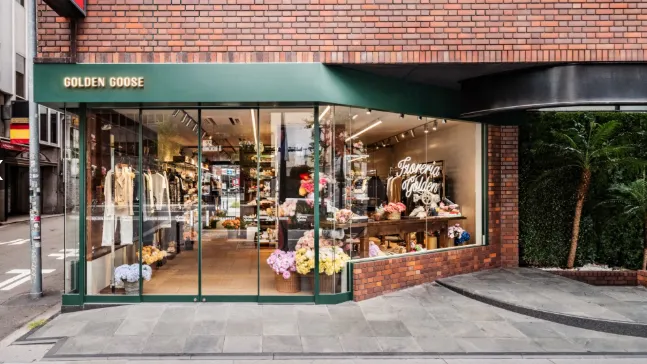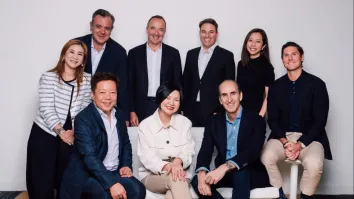Online Startup - RedMart builds grocery business Cloud-high
In an interview with Retail Asia at the recent Amazon Web Services (AWS) Summit, Rajesh Lingappa, co-founder and CTO of RedMart, shared the company’s startup journey. The online grocery was birthed out of necessity by two investors, Roger Egan and Vikram Rupani, who moved from New York to Singapore and found that the city did not offer the convenience of a full-fledged online grocery service that the time-crunched executives were used to in New York.
The trio together set up RedMart in March 2011 and launched to the public in October the same year headed by Egan as the CEO, Rupani as the COO, and Lingappa, who was tasked with developing the site.
RedMart’s(https://redmart.com) entire business platform is born in the Cloud, built on AWS’ Cloud infrastructure. It is also one of the first retailers in the world to put its warehouse management system on the Cloud.
RedMart started out with several key differentiators, said the CTO. First, the entire company began its operation from day one on the AWS Cloud platform. This has enabled it to reap immediate benefits. “We experienced faster experimentation, faster roll-out; it was more cost-effective and secure, and it was easier for us to grow the infrastructure along with the company.”
CTO Rajesh Lingappa pointed out that as a startup with limited resources, RedMart needed to focus on building its business and serving its customers without having to worry about maintaining server uptime.
Secure in its Cloud environment, the newborn, purely online grocery service took off rapidly.
The other key differentiator that RedMart has is its “on-time service guarantee” with the assurance that it would deliver a customer’s grocery order within their chosen two-hour time slot. If it fails to do so, RedMart will credit S$5 (US$3.70) to the customer’s account.
The company said that it is the first and currently the only online grocery platform in Singapore to offer this service.
“The two-hour slot delivery is unheard of in Singapore, and something our customers like; they don’t have to spend the whole day waiting,” said Lingappa. “We may have fantastic apps but if we don’t deliver on time with all the items properly packed, customers won’t come back to us.”
He also believes that there needs to be a personal touch. “Service is the biggest differentiator. Our drivers who do the deliveries are well trained,” he added. The drivers have to be presentable, courteous and help the customer put away the order if necessary. “This is very important as the driver is the only touch point we have with the customer. The rest of the transaction is virtual.”
Apps, innovation and automation
From the start, the young company has focused on innovation and automation. Lingappa and his team of engineers built their own applications, mostly Android-based, all aimed at reducing manual labour and improving productivity.
One in-house solution is a warehouse application that automates the picking and packing process. RedMart’s youthful warehouse team had problems using the old scanner technology which was heavy, expensive and slow.
“We created an app that was lighter, cheaper, faster and offers better user experience,” said Lingappa. The engineers have also “gamified” the app to help speed up efficiency in a fun way.
“With the current technology and open store, it’s very easy to create our own applications tailored to our own needs,” said Lingappa. Other in-house innovations include creating its own CRM and Driver Buddy, an app which tracks every order and delivery schedule.
RedMart is also working with a partner to develop a robot, an AGV (automated ground vehicle) with a one click control. Instead of pushing heavy trolleys around the warehouse, pickers would be able use this automated device to move trolleys from one container to another.
The online grocer continues to expand its product offerings and currently offers some 9,000 items. As its business grew, one constraint that came up was the lack of physical space, said Lingappa. “We had just small warehouse space of about 3,000sqf when we started out. I can easily speed up servers in AWS but it’s more difficult to expand warehouse space and delivery.” Today, it has a central warehouse offering 120,000sqf of storage space — about 40 times the size of its original warehouse. It is equipped with cold rooms for fresh, chilled and frozen items. Supplies come from its vendors, both local as well as direct imports from Europe and US.
Marketplace — a venue for other vendors to sell their merchandise
RedMart has expanded its operation through Marketplace, a storefront within its store where other Singapore vendors can list their products. “Listing on our Marketplace is the easiest go-to market strategy for retailers without any online presence,” said Lingappa.
RedMart will fulfil customer orders made in Marketplace; it will pick up the orders from the vendors and deliver the items together with its own orders, providing a seamless delivery to the customer.
RedMart provides Marketplace vendors with an end-to-end service. “Vendors don’t have to worry about things like merchandising, taking better product photos, or deliveries. For us the advantage is we offer a bigger and wider selection without having to hold the inventory. We plan to expand on this merchant portal,” said Lingappa.
Currently, Marketplace has more than 30 vendors listed. They include Mothercare, Nature’s Superfood, Bake King, The Straits Wine Company, and LeVigne Wines & Whiskey.
RedMart’s best-selling items include beer, water, toilet rolls and other heavy staple products that are difficult for shoppers to carry.
Lingappa said that grocery e-commerce is one of the hardest segments to do because a typical order tends to have more items (averaging 20-25 lines per order), compared to electronics, apparel or books which have significantly fewer items per order. Also, groceries are bulkier, heavier and temperature-sensitive.
“The advantage we have is that we started with the most difficult category first and it will be easier to expand into other goods later,” he added. Currently, the store does not offer any white goods and big items.
RedMart has been averaging a 12% month-over-month revenue growth since its launch, revealed Lingappa. It has a staff -strength of more than 400 employees, and more than 40 engineers in Singapore and Bangalore, in India.
Now into its fourth year, RedMart is ready to spread its wings to take on the region. “We are in a growth phase — the key is to expand,” said Lingappa. While he declined to disclose location details, he confirmed that “by end of this year, we should have one new location and three by end of 2016; that’s our target.”
Singapore is a great place to kickstart a new business, said Lingappa. “It’s so very well organised, easy to experiment, and great demographics. But the market is limited in size. Once it’s proven in Singapore, we are able to get out to the region.” The Singapore grocery market is valued at around S$8 billion a year.
To date, RedMart has a total funding of US$27 million, backed by a number of high-profile investors and advisors. They include Garena, Skype co-founder Toivo Annus, Facebook cofounder Eduardo Saverin, Jason Ackerman, CEO of FreshDirect, Visionnaire Ventures, and SoftBank Ventures.
“Service is the biggest differentiator. Our drivers who do the deliveries are well trained ...This is very important as the driver is the only touch point we have with the customer. The rest of the transaction is virtual.”
— Rajesh Lingappa,
Co-founder and CTO, RedMart



















 Advertise
Advertise






